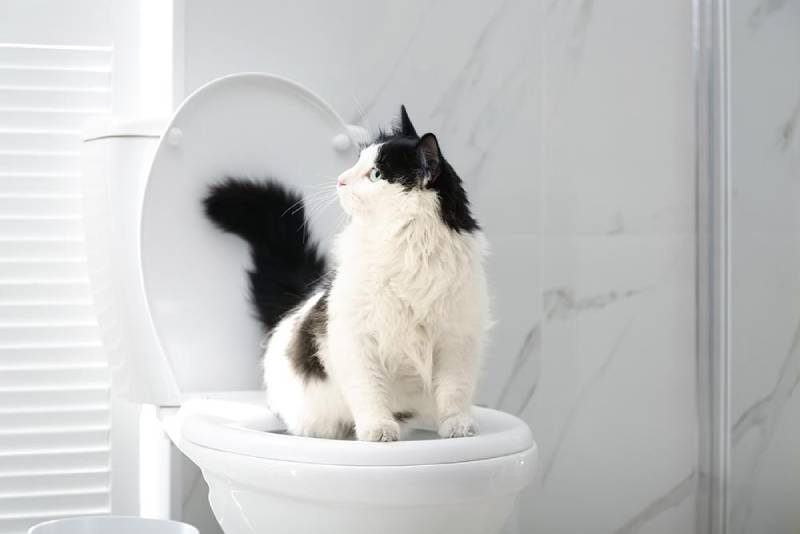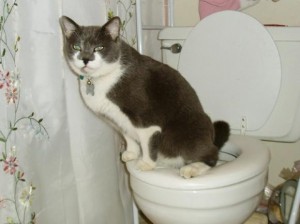Reasons Flushing Cat Poop Down Your Toilet Isn't a Good Idea - Tips for Safer Disposal
Reasons Flushing Cat Poop Down Your Toilet Isn't a Good Idea - Tips for Safer Disposal
Blog Article
We have come across this great article about How to Dispose of Cat Poop and Litter Without Plastic Bags below on the net and reckoned it made perfect sense to share it with you on my blog.

Introduction
As pet cat proprietors, it's necessary to bear in mind how we throw away our feline close friends' waste. While it may appear practical to flush cat poop down the toilet, this technique can have harmful repercussions for both the atmosphere and human health.
Alternatives to Flushing
Thankfully, there are much safer and much more accountable means to take care of feline poop. Consider the following choices:
1. Scoop and Dispose in Trash
One of the most common technique of disposing of pet cat poop is to scoop it into an eco-friendly bag and toss it in the garbage. Be sure to use a devoted litter scoop and get rid of the waste promptly.
2. Usage Biodegradable Litter
Go with eco-friendly cat clutter made from products such as corn or wheat. These trashes are environmentally friendly and can be securely taken care of in the garbage.
3. Hide in the Yard
If you have a backyard, think about burying pet cat waste in a marked location away from veggie yards and water resources. Make certain to dig deep adequate to avoid contamination of groundwater.
4. Set Up a Pet Waste Disposal System
Invest in a family pet garbage disposal system particularly created for feline waste. These systems utilize enzymes to break down the waste, reducing smell and environmental influence.
Health and wellness Risks
In addition to ecological concerns, flushing pet cat waste can also posture health risks to human beings. Feline feces may contain Toxoplasma gondii, a parasite that can trigger toxoplasmosis-- a potentially extreme ailment, specifically for pregnant ladies and people with weakened immune systems.
Ecological Impact
Purging cat poop introduces unsafe virus and bloodsuckers into the water system, positioning a significant threat to water ecosystems. These pollutants can adversely impact aquatic life and concession water quality.
Verdict
Responsible pet ownership extends past supplying food and shelter-- it likewise involves appropriate waste monitoring. By avoiding purging pet cat poop down the toilet and choosing alternative disposal techniques, we can minimize our ecological footprint and safeguard human health.
Why Can’t I Flush Cat Poop?
It Spreads a Parasite
Cats are frequently infected with a parasite called toxoplasma gondii. The parasite causes an infection called toxoplasmosis. It is usually harmless to cats. The parasite only uses cat poop as a host for its eggs. Otherwise, the cat’s immune system usually keeps the infection at low enough levels to maintain its own health. But it does not stop the develop of eggs. These eggs are tiny and surprisingly tough. They may survive for a year before they begin to grow. But that’s the problem.
Our wastewater system is not designed to deal with toxoplasmosis eggs. Instead, most eggs will flush from your toilet into sewers and wastewater management plants. After the sewage is treated for many other harmful things in it, it is typically released into local rivers, lakes, or oceans. Here, the toxoplasmosis eggs can find new hosts, including starfish, crabs, otters, and many other wildlife. For many, this is a significant risk to their health. Toxoplasmosis can also end up infecting water sources that are important for agriculture, which means our deer, pigs, and sheep can get infected too.
Is There Risk to Humans?
There can be a risk to human life from flushing cat poop down the toilet. If you do so, the parasites from your cat’s poop can end up in shellfish, game animals, or livestock. If this meat is then served raw or undercooked, the people who eat it can get sick.
In fact, according to the CDC, 40 million people in the United States are infected with toxoplasma gondii. They get it from exposure to infected seafood, or from some kind of cat poop contamination, like drinking from a stream that is contaminated or touching anything that has come into contact with cat poop. That includes just cleaning a cat litter box.
Most people who get infected with these parasites will not develop any symptoms. However, for pregnant women or for those with compromised immune systems, the parasite can cause severe health problems.
How to Handle Cat Poop
The best way to handle cat poop is actually to clean the box more often. The eggs that the parasite sheds will not become active until one to five days after the cat poops. That means that if you clean daily, you’re much less likely to come into direct contact with infectious eggs.
That said, always dispose of cat poop in the garbage and not down the toilet. Wash your hands before and after you clean the litter box, and bring the bag of poop right outside to your garbage bins.
https://trenchlesssolutionsusa.com/why-cant-i-flush-cat-poop/

Do you really like reading about Can You Flush Cat Poo or Litter Down the Toilet?? Place feedback further down. We will be interested to see your ideas about this content. In hopes to see you back again soon. Are you aware of another individual who is fascinated with the topic? Take a moment to share it. I value reading our article about Can You Flush Cat Poop Down The Toilet?.
Click Here Report this page